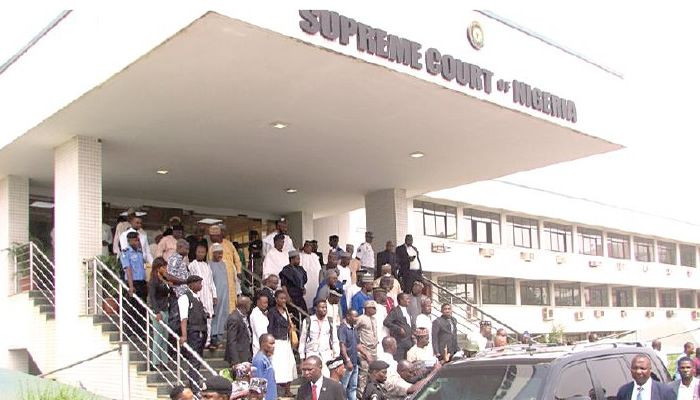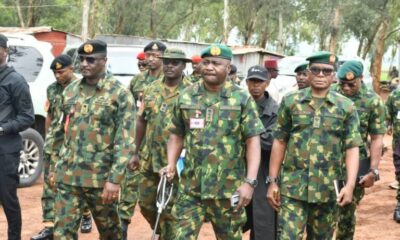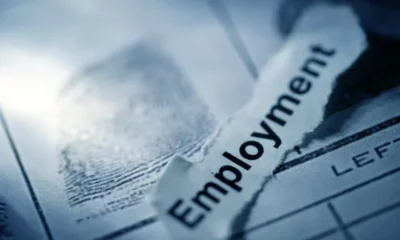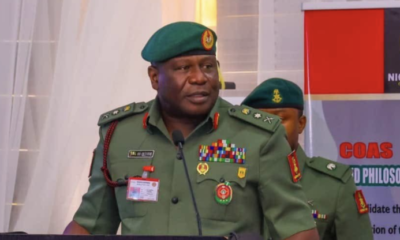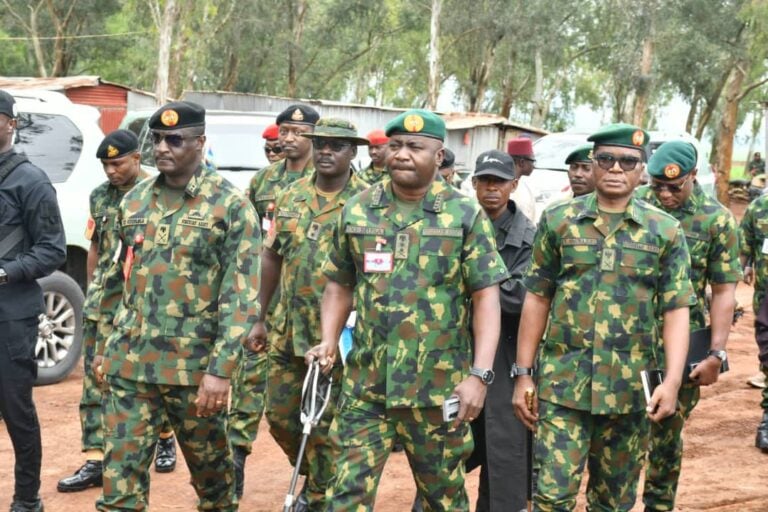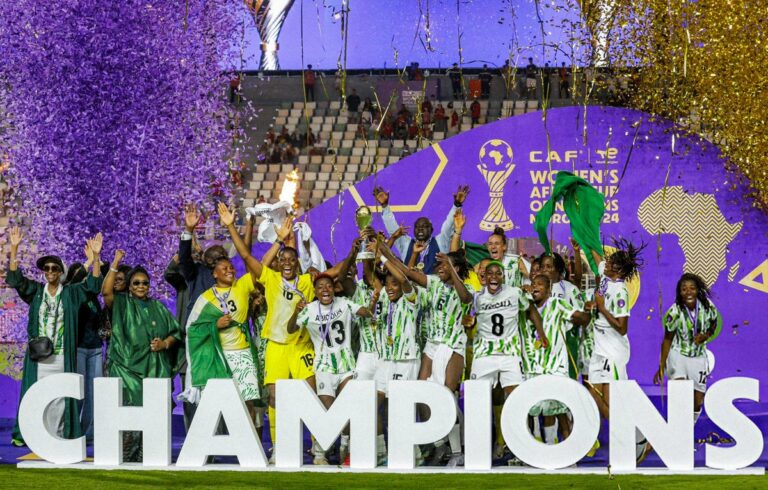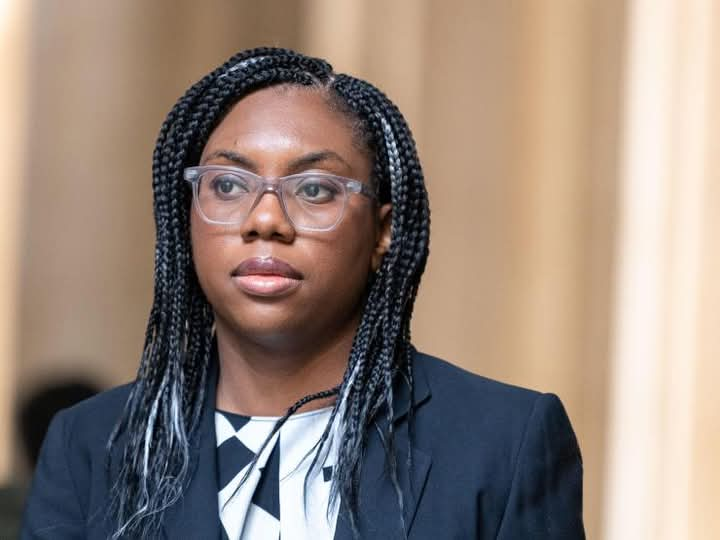President Bola Tinubu’s N150m reward to the Super Falcons for clinching their 10th WAFCON title has sparked varied public responses.
While some praised the gesture and lauded the President, others—especially retired military and police officers—criticised it as excessive.
Those opposed to the gesture described it as ill-timed, especially considering the “poor welfare and neglect” faced by military veterans who served the nation.
Retired police officers under the Contributory Pension Scheme voiced discontent, accusing the government of favouritism toward athletes, particularly female footballers, while those who risked their lives for national security are left struggling.
The Super Falcons overcame a two-goal deficit to secure a 3–2 victory and their 10th WAFCON trophy last Saturday.
In celebration, Tinubu hosted the squad at the Presidential Villa in Abuja on Monday.
During the event, each player and coaching crew member received the national honour of Officer of the Order of the Niger.
The President also awarded $100,000 to each player and $50,000 to each technical crew member.
Additionally, he promised each team member a three-bedroom flat at the Renewed Hope Housing Estate in the Federal Capital Territory.
At the exchange rate of N1,500 to the dollar, the $100,000 equates to N150m.
The announcement has stirred conversations across social media, with many questioning the rationale behind the gesture and Tinubu’s motives.
The reward also came shortly after a nationwide protest by retired police officers over what they described as disgraceful pension packages and ill-treatment.
On July 21, 2025, the former officers called for their removal from the Contributory Pension Scheme, saying it consistently shortchanges them.
Retired Soldiers Question Government’s Priorities
Lukmon Aderibigbe, who retired as a Corporal in 2024, questioned why footballers could earn in a single match what seasoned soldiers are denied over a lifetime.
He expressed disappointment with how soldiers are treated.
Aderibigbe said, “It is often said that no country can truly compensate a soldier for their sacrifice. While that may be true, the Federal Government has not been fair in terms of soldiers’ welfare.
“How can someone earn N150m for playing a game for under two hours, while a soldier who gives 35 years of his life to defend the nation receives only a fraction of that in gratuity?”
He recalled a colleague injured during a 2013 anti-Boko Haram operation who was neglected by the government during recovery.
According to Aderibigbe, the soldier was referred to the Nigerian Army Reference Hospital in Yaba, Lagos, but was told his gunshot wound wasn’t covered by the National Health Insurance Scheme.
The injured officer bore his medical costs.
“The situation worsened when his salary was stopped after he was ordered to return to his unit in Borno State (Monguno), even though his injury had not fully healed. All efforts to convince his commanding officer of his condition failed.
“Tragically, he was later killed during an attack on his unit by Boko Haram in 2014. He couldn’t escape because of his injury. What kind of country do we serve, where a soldier who sacrifices everything is treated this way?”
Aderibigbe also criticised the compensation soldiers receive, calling it grossly inadequate.
He said, “I am not satisfied with the reward I received for my service. After serving for over 15 years, I was paid less than N3m as gratuity.
“Recently, we (a set of retirees) wrote an observation letter to the Military Pension Board stating that we were underpaid. The basis of the complaint was that the new minimum wage, which was approved on July 29, 2024, and made effective from May 1, 2024, should apply to us, since we were still in active service during that period.
“Our official date of disengagement from service was July 1, 2024. Logically, our benefits should be calculated based on the current wage structure. Unfortunately, we were told by the Military Pension Board that we are not entitled to the adjustment. We are still pursuing the matter. But clearly, this is not a fair reflection of the sacrifices we made.”
He urged the government to support retired soldiers, stating that such recognition would boost morale and allow veterans to continue contributing to national security.
Adamu Bashar, another retired officer, echoed similar sentiments.
Bashar, who left service eight years ago, said the N150m gift was “a complete waste of scarce resources.”
He urged the government to extend such generosity to retired military personnel who protected the country throughout their careers.
“To me, that is a complete waste of money. Most of us, the retired soldiers, are being paid peanuts. We who defended this country with our lives are not even asking for N150m. Let the government give us even N20m and see whether youths will not show interest in joining the military.
“One of the reasons youths these days refuse to join the Army is because of the treatment those in service and veterans receive, which is not encouraging,” he stated.
Olumayowa Akogun-Abudu, a retired Lance Corporal injured in an insurgency attack, described Tinubu’s reward as excessive.
He argued that military veterans, not athletes, should have been prioritised.
Akogun-Abudu, in an interview with Saturday PUNCH, said, “They have always been wasteful in spending. I sacrificed my all for the country. I took the shots and bled all night, and N150m cannot even be worth the sacrifice.”
He called the military job “suicidal” and said he received no help after his 2017 battlefield injury.
“I was wounded at Kamuya by a suicide bomber while on advance with the 27 Task Force Brigade on April 27, 2017.
“They (government) gave me nothing. I was even spending my money while recuperating. It was one of the reasons I left the military, because I felt our sacrifices were not valued, neither were our efforts applauded.”
After 13 years and 66 days of service, Akogun-Abudu said his retirement pay was shockingly low.
He said, “I was paid N2,185,000, and my special debarment allowance was N911,000. That’s my worth. Why would I be happy with such ill-treatment?”
In Yobe State, retired Army Corporal Abdullahi Idris said veterans are treated as “third-class citizens.”
Abdullahi, who retired in 2003 after 12 years, suffered a leg fracture during service.
He said he gets a monthly pension of N72,900 and faces issues like unpaid entitlements and lack of recognition.
“We have started receiving the security debarment allowance, but it suddenly stopped for no reason. If the government can pay us all outstanding entitlements, we will feel regarded as first-class citizens who served to defend the Nigerian state,” Abdullahi stated.
He said spending on things like the Falcons’ reward reflects misplaced government priorities.
Abdullahi said, “It shows that retired army officers are no longer considered first-class citizens, but rather third-class citizens.
“The situation is highly disheartening, with many retired army officers feeling neglected and demoralised. Some have total disabilities and are left stranded and uncared for, while others struggle to access medical care.”
He urged both the Federal Government and the Nigerian Army to settle the outstanding entitlements of retired personnel.
In Yobe State, retired Army Captain Yahaya J. Umar stressed the need to adjust pensions in line with economic conditions.
Umar, who joined the Army in 1992 and retired in 2014, called on the government to support veterans and their families with education and employment.
Police Retirees Demand Equity
Mannir Lawal, a leader among CPS-retired police officers, said the reward for the Super Falcons highlights the government’s reluctance to resolve retirees’ long-standing complaints.
He said, “We were surprised when we saw what was given to our female footballers, while we had been made to believe there is no money.
“If they released this kind of huge sum to the Falcons simply because they won a competition, it shows they are not ready to take care of retired police officers. That is the conclusion I can draw now.”
Lawal argued that police retirees deserve more than “a three-bedroom apartment and some token money,” given the dangers they faced during their service.
“Without our efforts, you can’t imagine what would have become of this country. Some of us had life-threatening injuries, and others died while serving Nigeria. Let them just exit us from the CPS. That scheme has led to the deaths of many of us, while others are still dying,” he lamented.
Another retired officer, Buba Danjuma, criticised the government’s spending priorities.
He said it was hurtful to see footballers receive massive payouts for a 90-minute match while lifelong security officers live in poverty.
“We watched it on TV — our daughters who played football for 90 minutes collecting this huge amount of money, while those who sacrificed their lives are being neglected by the government. What kind of government is that?” Danjuma asked.
He also criticised the National Health Insurance Scheme for failing to support retirees with basic medical needs, despite years of contributions.
“They collected our money when we were serving. Now that we are retired and need the scheme, they say drugs are out of stock. You will need not less than N10,000 to N15,000 to buy them yourself. Meanwhile, what we receive monthly is peanuts,” he lamented.
Danjuma said the way retirees are treated discourages serving officers from giving their best.
“Those still in service are watching. How do you expect them to give their best when their future is not bright? They have seen how we are suffering.”
Nigerians happy Tinubu gave Super Falcons N150m each – Onanuga
Bayo Onanuga, Special Adviser to the President on Information and Strategy, said many Nigerians supported the rewards given to the female footballers.
He urged critics not to connect the reward to unrelated issues and defended the President’s gesture.
Onanuga said, “As much as there has been criticism on this, there have also been praises, lots of praises. In fact, more praises for that gesture.
“Let’s not complicate matters. We cannot link the reward given to the Super Falcons to other things. I’ve read someone saying that the money can pay 16,000 doctors. They’re two different things. You can’t link it to ex-service men and women’s payments. They’re different issues. Let’s not mix them up. The President and the country were proud of those girls’ achievement for the 10th time. So, this was at the back of the President’s mind when he was showering them with those gifts. He rewarded them for their hard work, their spirit in the field of play. That’s the reason.
“From what I read, many Nigerians supported that gesture. And don’t forget, some veteran sports people like Aisha Falode said this is the first time in all their 10 victories that a sitting President will give these girls such a grand reception. First, it is a record — 10 victories. And the 10th one was even more spectacular. Many people gave up after the first half. Some saw the news of our victory the next morning.”

 BIG STORY3 days ago
BIG STORY3 days ago
 BIG STORY5 days ago
BIG STORY5 days ago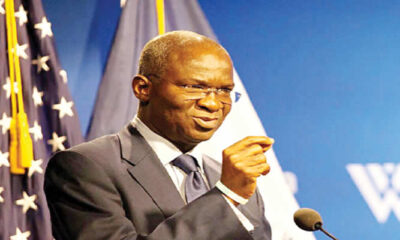
 BIG STORY3 days ago
BIG STORY3 days ago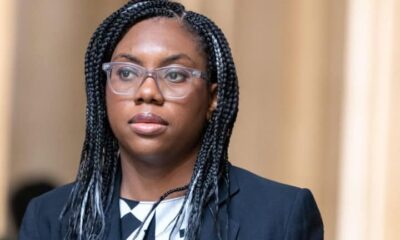
 BIG STORY19 hours ago
BIG STORY19 hours ago
 BIG STORY4 days ago
BIG STORY4 days ago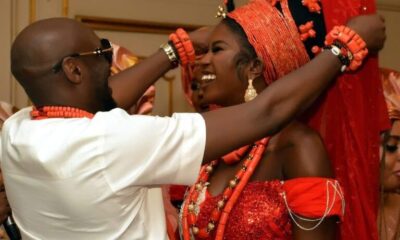
 BIG STORY2 days ago
BIG STORY2 days ago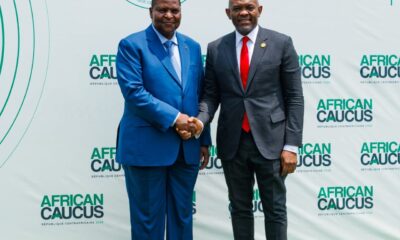
 BIG STORY2 days ago
BIG STORY2 days ago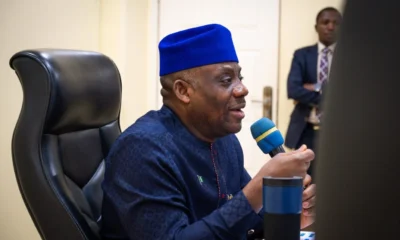
 BIG STORY3 days ago
BIG STORY3 days ago




